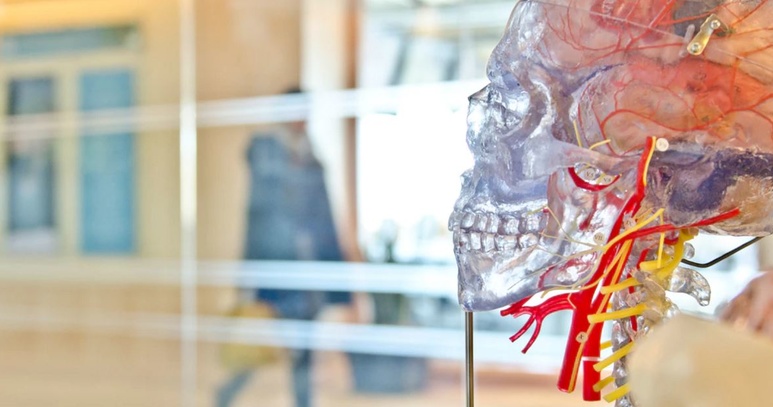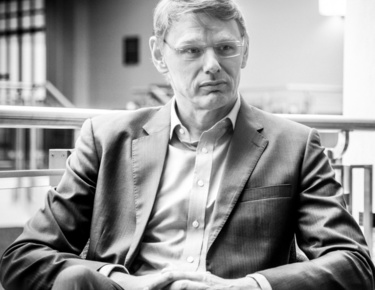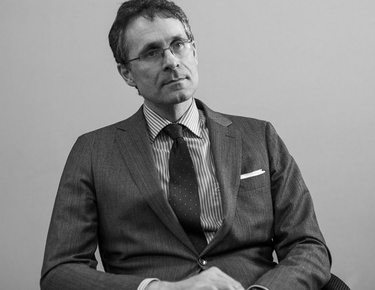
- 12-15 March 2016
- Madrid, Spain
- Congress website
The 24th European Congress of Psychiatry (EPA 2016) is a major meeting of international psychiatrists dedicated to promoting European psychiatry and to improving mental health around the globe. Guided by the motto Towards a Common Language in European Psychiatry, EPA 2016 covers the newest psychiatric achievements: basic, clinical and translational research, and their application to evidence-based practice in diagnosis, treatment and education.
Published highlights and interviews from the conference are available here. To receive the latest updates by email, please sign up for our newsletter here.

Our multidisciplinary team provides an acute psychiatry service for Delft and the surrounding countryside between Rotterdam and The Hague, and also a functional assertive community treatment programme. I see around fifty patients with an acute depressive episode each year, but in total there are 550-600 people in assertive community treatment.
Not all have major depressive disorder (MDD). There are also patients with schizophrenia, schizoaffective or personality disorders, even some on the autistic spectrum.
Many MDD patients live at home. We also have patients living in intermediate care: institutions of 20-40 people which provide social support and activities as well as medication. Nurses visit at least weekly to hear from the support workers. Evolving, this may require hospitalisation. But, given the pressure on hospital beds, we try to handle problems proactively to keep patients in the community if possible.
The fact that so many patients are suicidal. To deal with that we have to see some patients every day, or every other day. And if they don’t come to us we visit them. The team has psychiatric social workers and nurses but if a patient has active suicidal ideation, a psychiatrist in training will accompany them to the patient’s home.
With antidepressants, group therapy, social support and encouragement with employment. Our clinical psychologists offer cognitive behavioural and other psychological therapies. We also try to involve the patient’s own support networks.
And our team has three support workers who are themselves psychiatric patients. They will sometimes accompany patients into situations where they feel fearful; and they have a role in activating and motivating patients who continue to have problems.
Of the people in the assertive community treatment programme, who I follow long term, between a quarter and a third have some core depressive symptoms even after several lines of medical treatment. For some of these patients we offer ECT.
Many patients treated with drugs, not just those on antipsychotics, are at risk. So we see MDD patients at least yearly, more frequently if necessary, and measure blood pressure, weight, waist circumference, blood glucose, lipids and so on. With patients likely to evolve metabolic syndrome, we notify their family doctors.
We also offer advice on diet. There are even “eating healthy breakfast” sessions where patients can learn about making positive food choices.
Dr van der Drift works for GGZ Delfland, a regional provider of community mental health services in The Netherlands.





People suffering from mental illness need to know that they are worth it – to be empowered and have self-esteem. The 2016 EPA symposium on overcoming the stigma of mental illness updated us on work to tackle this pervasive problem.
While progress is evident and inspiring, we need much more. Prof Wolfgang Gaebel (Heinrich-Heine-University, Dusseldorf), and President of the EPA, reminded us that if we don’t do anything, nothing will be done, and things will stay the same.
‘The stigma of mental illness is still the main obstacle to the development of mental health services and a heavy burden for all touched by mental illness’ Prof Wolfgang Gaebel
Self-stigma is believing the stereotypic or stigmatising views about you are true. It reduces empowerment, self-esteem, self-efficacy. Both stigma and self-stigma impact quality of life. People avoid seeking help and get stuck in a hopeless situation. Empowerment – the sense of self-realisation – allows people to overcome their powerlessness and motivates them to pursue a better future.
There are a number of actions and strategies against different levels of stigma – social, institutional and self-stigma. These actions target knowledge, attitudes and discriminative behaviour. However, the evidence for effective anti-stigma interventions addressing people with mental health problems is scarce.
Prof Gaebel presented the first results from the STEM study. This is the first randomised controlled trial to test psycho-educational therapy addressing stigma-coping and empowerment in patients with depression and schizophrenia. The trial, carried out in different health care settings in Germany, involved two groups:
Intervention: regular psycho-education (8 sessions) and stigma-coping and empowerment (3 sessions plus 1 booster session).
Control: regular psycho-education (11 sessions plus 1 booster session).
The main endpoint was the long-term improvement of perceived quality of life (WHO-QOL) compared to the control group. More than 300 patients (65%) completed the 12-month follow-up. Three-quarters of the patients had depression, and a quarter had schizophrenia.
Overall, as well as in the depressed subgroup, there was no difference between the intervention and control arms in WHO-QOL at 12 months. In the schizophrenia group, there was in fact a non-significantly higher WHO-QOL among controls. These results are surprising.
The statistical analysis is still in progress and no definitive conclusions have been drawn.
Possible reasons for lack of effect may be that the intervention and control groups were actually managed in a very similar way– only 4 of the 12 sessions addressed different topics (i.e. included empowerment). Also, the good standard of basic treatment in both groups might make it difficult to see an intervention effect.
Prof Sara Evans-Lacko (London School of Economics and Political Science), described the current state of research on social exclusion and stigma in Europe.
Literature mapping was used to select relevant articles published between 2007 and 2012 - 810 articles were included in the analysis. The patients in these studies suffered from a range of mental disorders including depression and schizophrenia. By far, most of the articles were from the UK, followed by Germany and the Netherlands. Very few came from Eastern European countries. The research was primarily in detection, screening and diagnosis.
Her conclusion is that despite growing interest in this field, there is still little research looking specifically at ways of protecting against and reducing stigma and promoting resilience and social inclusion.
Prof Yoram Cohen, Acting President of Global Alliance of Mental Illness Advocacy Networks (GAMIAN)-Europe asked the question: seven years after ratification of the United Nations Convention on the Rights of Persons with Disabilities (UNCRPD), are there any advances for patients with mental health conditions?
The UNCRPD is a beacon of light to follow. It recognises that discrimination based on disability is a violation of the person’s inherent dignity and worth. The contributions made by persons with disabilities to the overall well-being of their communities are valuable. And autonomy and independence for persons with disabilities, including the freedom to make their own choices, are important.
Despite the ideals proclaimed in the UNCRPD, care in many mental health facilities around Europe is still of poor quality and in some cases may hinder recovery.
The misconception that people with mental health problems are not able to take responsibility, manage their affairs and make decisions about their lives contributes to ongoing marginalisation in their communities.
Bert Johnson, President of EUFAMI – the European Federation of Associations of Families of People with Mental Illness – highlighted the harsh reality of stigma and the fact that it goes to the heart of what it is to be human.
Families also suffer from stigma. The Caring for Carers (C4C) survey assessed the experiences of family members caring for their relative with severe mental illness from a number of countries. A third of carers reported that they are treated differently because of the mental illness of the person they care for. People felt reluctant to invite guests to their home and withdrew from relationships.
The recommendations to counter stigma are common sense, Mr Johnson told the audience – but it is putting them into practice that counts. These include education about mental health and the care required, and raising public awareness of the impact of mental illness on families.
The stigma of mental illness is a major challenge for patients and their families.







As delegates began arriving in Vienna, our correspondent caught up with Dr Ofer Agid of the Department of Psychiatry at the University of Toronto, Canada.





